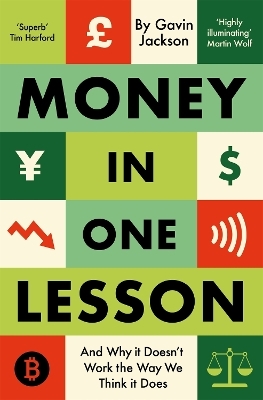
The Business Cycle
Growth and Crisis under Capitalism
Seiten
1992
Princeton University Press (Verlag)
978-0-691-02721-0 (ISBN)
Princeton University Press (Verlag)
978-0-691-02721-0 (ISBN)
- Titel ist leider vergriffen;
keine Neuauflage - Artikel merken
This treatise draws on the works of Wesley Clair Mitchell, Karl Marx and John Keynes to argue that recessions and painful involuntary unemployment are endogenous to capitalism. It explains why the business cycle produces economic loss during its contraction phase, and growth in its expansion phase.
Are the recurring recessions of the capitalist world merely short-term adjustments to changing economic circumstances in a system that tends, in general, toward equilibrium? In this accessible study of the business cycle, Howard Sherman makes a powerful case that recessions and painful involuntary unemployment are endogenous to capitalism. Drawing especially on the work of Wesley Clair Mitchell, Karl Marx, and John M. Keynes, Sherman explains why the nature of the business cycle produces serious economic loss and misery during its contraction phase, just as it produces growth in its expansion phase.
Originally published in 1991.
The Princeton Legacy Library uses the latest print-on-demand technology to again make available previously out-of-print books from the distinguished backlist of Princeton University Press. These editions preserve the original texts of these important books while presenting them in durable paperback and hardcover editions. The goal of the Princeton Legacy Library is to vastly increase access to the rich scholarly heritage found in the thousands of books published by Princeton University Press since its founding in 1905.
Are the recurring recessions of the capitalist world merely short-term adjustments to changing economic circumstances in a system that tends, in general, toward equilibrium? In this accessible study of the business cycle, Howard Sherman makes a powerful case that recessions and painful involuntary unemployment are endogenous to capitalism. Drawing especially on the work of Wesley Clair Mitchell, Karl Marx, and John M. Keynes, Sherman explains why the nature of the business cycle produces serious economic loss and misery during its contraction phase, just as it produces growth in its expansion phase.
Originally published in 1991.
The Princeton Legacy Library uses the latest print-on-demand technology to again make available previously out-of-print books from the distinguished backlist of Princeton University Press. These editions preserve the original texts of these important books while presenting them in durable paperback and hardcover editions. The goal of the Princeton Legacy Library is to vastly increase access to the rich scholarly heritage found in the thousands of books published by Princeton University Press since its founding in 1905.
| Reihe/Serie | Princeton Legacy Library |
|---|---|
| Verlagsort | New Jersey |
| Sprache | englisch |
| Gewicht | 680 g |
| Themenwelt | Wirtschaft ► Volkswirtschaftslehre ► Finanzwissenschaft |
| Wirtschaft ► Volkswirtschaftslehre ► Mikroökonomie | |
| ISBN-10 | 0-691-02721-8 / 0691027218 |
| ISBN-13 | 978-0-691-02721-0 / 9780691027210 |
| Zustand | Neuware |
| Haben Sie eine Frage zum Produkt? |
Mehr entdecken
aus dem Bereich
aus dem Bereich
eine Einführung in die Staatsfinanzen
Buch | Hardcover (2024)
Vahlen (Verlag)
39,80 €
New Foundations
Buch | Softcover (2022)
Edward Elgar Publishing Ltd (Verlag)
64,75 €
and why it doesn't work the way we think it does
Buch | Softcover (2023)
Pan Books (Verlag)
13,70 €


